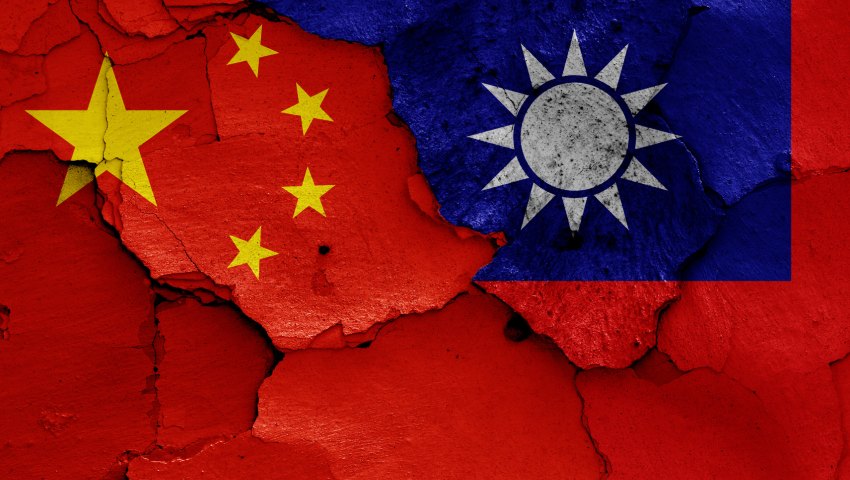What can the West learn about Russia’s invasion of Ukraine to support Taiwanese sovereignty?
To continue reading the rest of this article, please log in.
Create free account to get unlimited news articles and more!
While analysts the world over have sought to question how the Russian military got the invasion of Ukraine so wrong, many have also begun asking the equally important question – “how have the Ukrainians and the West stopped the Russian Army in its tracks?”. Both questions provide equally important intelligence for military commanders ahead of the next conflict.
On a bare basic level, the Russian invasion appears to be a cacophony of failed “one percenters”. Small lessons like: don’t fob off vehicle maintenance and make sure your soldiers remember their basic combat drills appear to make up much of the videographic and photographic information coming out of Ukraine about the Russian war effort.
Analysis snapshot
In February, many questioned whether Russia would invade at all as it would signal to the world that (despite the bluster) Russia actually possesses substandard military technology, and that Ukraine’s irregular warfare capabilities would create a sustained insurgency that would simply be intolerable for the Russian government.
In early March, online sleuths took to social media to argue that a combination of poor vehicle maintenance and badly made Chinese tyres had stalled Russia’s advance to Kyiv, forcing military vehicles off of muddy fields and onto roads. This had the result of Russian-tank-induced traffic jams on major Ukrainian highways.
Last week, Major General (Ret’d) Mick Ryan questioned Russia’s lack of innovative solutions on the battlefield – whether cyber operations or machine-human teaming. These missing solutions have led to Ukrainian information dominance and an inability for Russia to dominate the air.
Few can also forget the now infamous “do you want a tow back to Russia?” video, where in seeming defiance to all basic soldiering skills, Russian soldiers happily stood beside their broken-down tank. A thought that would cause Western military commanders to shudder.
Multiple videos on social media of Russian military out of fuel, food and stuck on highways pic.twitter.com/UTKLmTJf38
— Liveuamap (@Liveuamap) February 26, 2022
Lessons for Taiwan
Nevertheless, the recent invasion has provided significant insight and intelligence into the modern conventional battlefield.
Writing for War on the Rocks this week, senior political scientist Jeffrey Hornung of the RAND Corporation explained that a Chinese victory in Taiwan is not guaranteed. However, to maximise effectiveness, the US must maintain a military presence in the region and begin stepping up their support of Taiwan’s military ahead of a potential conflict.
Irregular warfare
Lessons from the citizen resistance in Ukraine and the ability for irregular soldiers to destroy expensive military technology evidences that a Chinese victory over Taiwan is not guaranteed.
“This underestimation of the Ukrainians’ capability and will to fight had disastrous consequences for Russia. The same hubris could bedevil a Chinese invasion of Taiwan. As in Ukraine, national identity could play a factor. An overwhelming number of people in Taiwan see themselves as Taiwanese, distinct from mainland China, which can serve as a powerful motivation to fight,” Hornung argues.
“Training these people into some sort of territorial defense force could help make them lethal. Tactically, in advancing from Taiwan’s western shore to Taipei, an invasion force could encounter numerous insurgents ready to set ambushes and take out vehicles with the types of anti-tank weapons being used in Ukraine.”
The wheels for a Taiwanese insurgency are already in motion.
The realisation among some in Taiwan’s military apparatus that the island nation could no longer convincingly defend itself in the event of a PLA invasion spurred the introduction of the Overall Defense Concept in 2017 by Taiwan’s Admiral Lee Hsi-ming.
“Rather than engage the People’s Liberation Army force-on-force, Taiwan would be better positioned to pursue an asymmetric guerilla war in which civilians and military forces fight from urban areas, where they could hide and restock supplies. Similarly, the same forces could use guerrilla tactics to defend key choke points like bridges or valleys while leveraging mountains or rivers as obstacles,” Hornung continued.
Indeed, many theorists have observed that the democratisation of high-tech and easy to use weapons have put incredibly destructive powers in the hands of irregular troops. Such accessible capabilities have made even untrained members of citizen militias threats to tank and helicopter teams.
At an operational-strategic level, this has enabled Ukraine’s commanders to use their well-trained regular forces to more effect in recapturing strategic assets.
Co-ordinated response
While Taiwan may be able to successfully defend itself in the event of an invasion, geographic isolation creates a significant barrier for the West to provide Taiwan with material and humanitarian support.
A barrier which is far more porous in Ukraine.
As a result, Hornung argues that the West and Taiwan need to make these preparations ahead of time, and support Taiwan’s militarisation before an invasion.
“As with military aid, Taiwan’s allies and partners should coordinate their economic response in advance to ensure they can act as quickly and effectively as possible,” Hornung argued.
“Difficulties will only increase if China establishes air superiority and a maritime quarantine of Taiwan, enabling Chinese forces to intercept or prevent such aid from arriving. As a result, this assistance would be more effective before a war starts. Taiwan should be encouraged to stockpile — or procure — critical capabilities in peacetime.”
Hornung also argues that stockpiling ahead of time will also help Taiwan overcome apathy in the West.
According to the researcher, many nations providing military, economic and diplomatic support to Ukraine don’t legally recognise Taiwanese sovereignty. Moreover, with Taiwan across the globe, they will be less likely to tempt Chinese reprisals or general economic fallout to support Taiwanese sovereignty.
Such apathy was recently evidenced. In the face of an invasion on their doorstep, members of the European Union and NATO demonstrated fundamental divisions on how to sanction Russia. It is expected that such divisions would be magnified in the face of a Chinese invasion of Taiwan.
As such, Hornung contends that the United States should co-ordinate a raft of economic sanctions alongside the world’s largest economies ahead of time, which can be immediately implemented in the event of an invasion.
Invasions just aren’t that easy
Despite having military, numeric and economic supremacy over one’s adversary – invasions just aren’t as simple as they may appear on paper. This is the lesson that the Russians are now learning.
However, Russia faces far fewer logistical barriers invading Ukraine than China in Taiwan, not least that a small yet important portion of Ukraine was already under de-facto Russian control.
“Launching a successful large-scale amphibious invasion across a maritime strait would require a lot of things to go right, and thus involves a lot of opportunities for things to go wrong,” Hornung notes.
A Chinese invasion of Taiwan may have many more difficulties attached to it than Russia’s invasion of Ukraine. However, it is up to the West to learn from the wins and losses of Russia’s invasion of Ukraine.
Get involved with the discussion and let us know your thoughts on Australia’s future role and position in the Indo-Pacific region and what you would like to see from Australia's political leaders in terms of partisan and bipartisan agenda setting in the comments section below, or get in touch with
Liam Garman
Editor – Defence and Security, Momentum Media

 Login
Login








